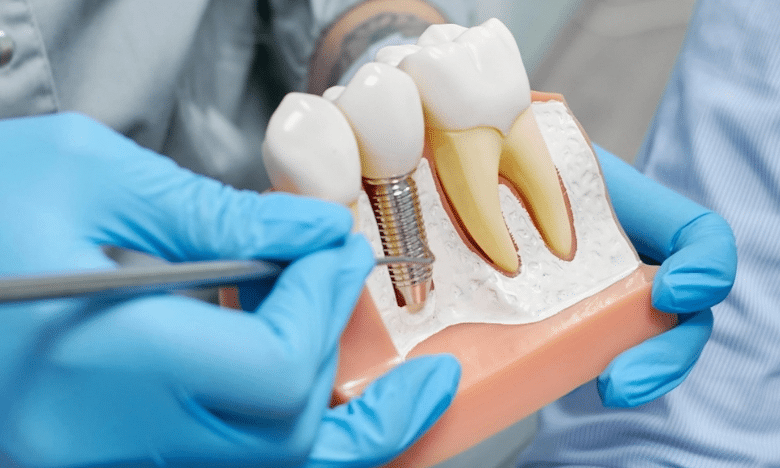How to Improve Your Credit to Qualify for a Dental Loan

Taking care of your teeth is important, but dental work can be expensive. Many people turn to dental financing to help pay for braces, crowns, root canals or even emergency dental care. One common way to get help is through a dental loan — a personal loan used to pay dental costs.
But to get a dental loan, you may need a strong credit score. If your score is too low, lenders might decline your application or charge you a higher interest rate. The good news is there are steps you can take to improve your credit score, and with stronger credit, you could have a better chance of qualifying for a loan and getting a lower rate.
Let’s look at what you can do to boost your credit score and make dental care more affordable:
Understand your credit score
Your credit score is a three-digit number that ranges from 300 to 850 and plays a significant role in how lenders view your creditworthiness when you apply for credit. A higher credit score signals to lenders that you pay your bills consistently and on time, while a lower score may indicate a history of late or missed payments. The higher your score, the more likely you are to qualify for loans and credit cards with better terms, such as lower interest rates.
Credit scores are broken down into five categories:
- Poor: 300-579
- Fair: 580-669
- Good: 670-739
- Very good: 740-799
- Excellent: 800-850
Knowing your score can help you figure out what to work on if it needs improvement.
Credit scores are based on a mix of:
- Payment history: Shows whether you pay bills on time. Payment history is the most important factor in your credit score. Late or missed payments, bankruptcies and debt collections lower your score.
- Credit utilization: The percentage of how much credit you use compared to your total available credit. Keeping credit utilization below 30% helps your score. For example, owing $300 out of $1,000 in available credit equals 30%.
- Types of credit: Refers to different kinds of accounts you have, such as credit cards (revolving accounts) and loans (installment accounts). A mix of account types helps your score because lenders see you can manage different types of debt.
- Length of credit history: How long your accounts have been open. A longer credit history, without derogatory reporting may help your credit score.
- Recent credit inquiries: The number and frequency of recent applications for new credit accounts. When you apply for a new credit product, the lender will place a hard inquiry on your report as they determine your eligibility. Hard inquiries may lower your credit score temporarily and having too many in a short period of time may be a red flag for the lender. However, checking your own credit or receiving pre-approved offers (“soft inquiries”) does not affect your credit score.
Check your credit report for mistakes
Errors on your credit report can sometimes lower your credit score. These might include incorrect personal information, outdated account details, or payment history mistakes.
You’re entitled to one free credit report per year from each of the three major credit bureaus — Equifax, Experian, and TransUnion –– through AnnualCreditReport.com, a federally authorized site for free reports.
In addition to this yearly check, you can also monitor your credit report more regularly through free credit monitoring services or tools typically offered by your bank or credit card provider. At minimum, even just reviewing your monthly reports can help you spot and correct errors early, which may improve your credit score over time.
When you check your report, make sure:
- All the accounts are really yours
- There are no missed payments that you actually did pay
- Your personal information is correct
If you see something wrong, you can contact the credit bureaudispute it and ask for a fix.
Pay your bills on time
This is the most important step. Lenders want to see that you can pay money back when it’s due. Late payments could hurt your credit score significantly.
Here’s how to stay on track:
- Set up reminders on your phone or calendar
- Use automatic payments when you can
- Even paying the minimum amount on time is better than paying late
Lower your credit card balances
If you owe a lot of money on your credit cards, it can drag your score down. Try these tips:
- Pay off more than the minimum when you can
- Limit the use of credit cards for new purchases
Getting ready for dental financing
Dental work can be pricey, but dental financing through a loan could help you get the care you need without paying all the cost at once. By improving your credit score, you’ll be more likely to qualify for a dental loan and maybe get a more competitive interest rate.
Remember, a better credit score means more choices and with it, potentially lower borrowing costs. Whether you need braces, implants or a cleaning, taking control of your credit score is a smart move for your health and wallet.
So, start today — and smile knowing you’re one step closer to getting affordable dental care!
Notice: Information provided in this article is for information purposes only and does not necessarily reflect the views of [boringmagazine.com] or its employees. Please be sure to consult your financial advisor about your financial circumstances and options. This site may receive compensation from advertisers for links to third-party websites.




